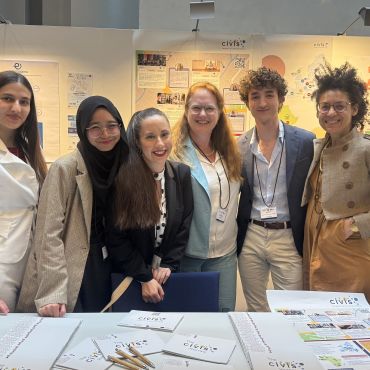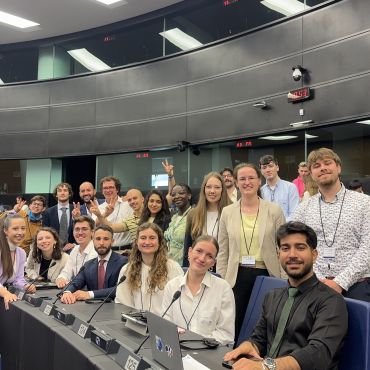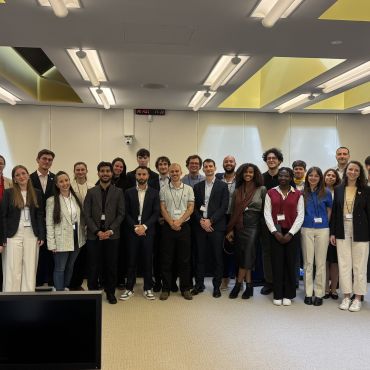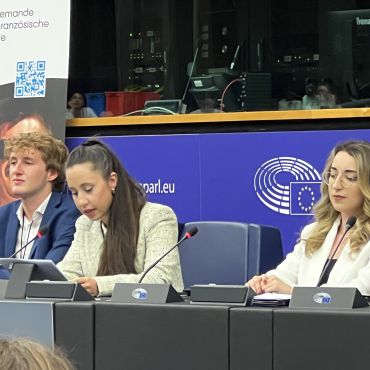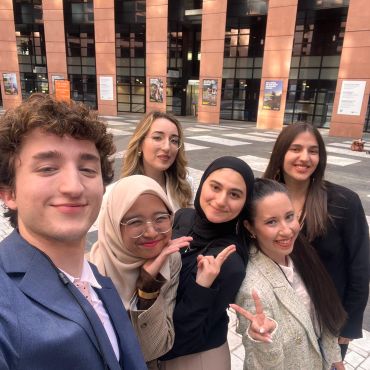Future in the making: European students shape policy at ESA25 in Strasbourg
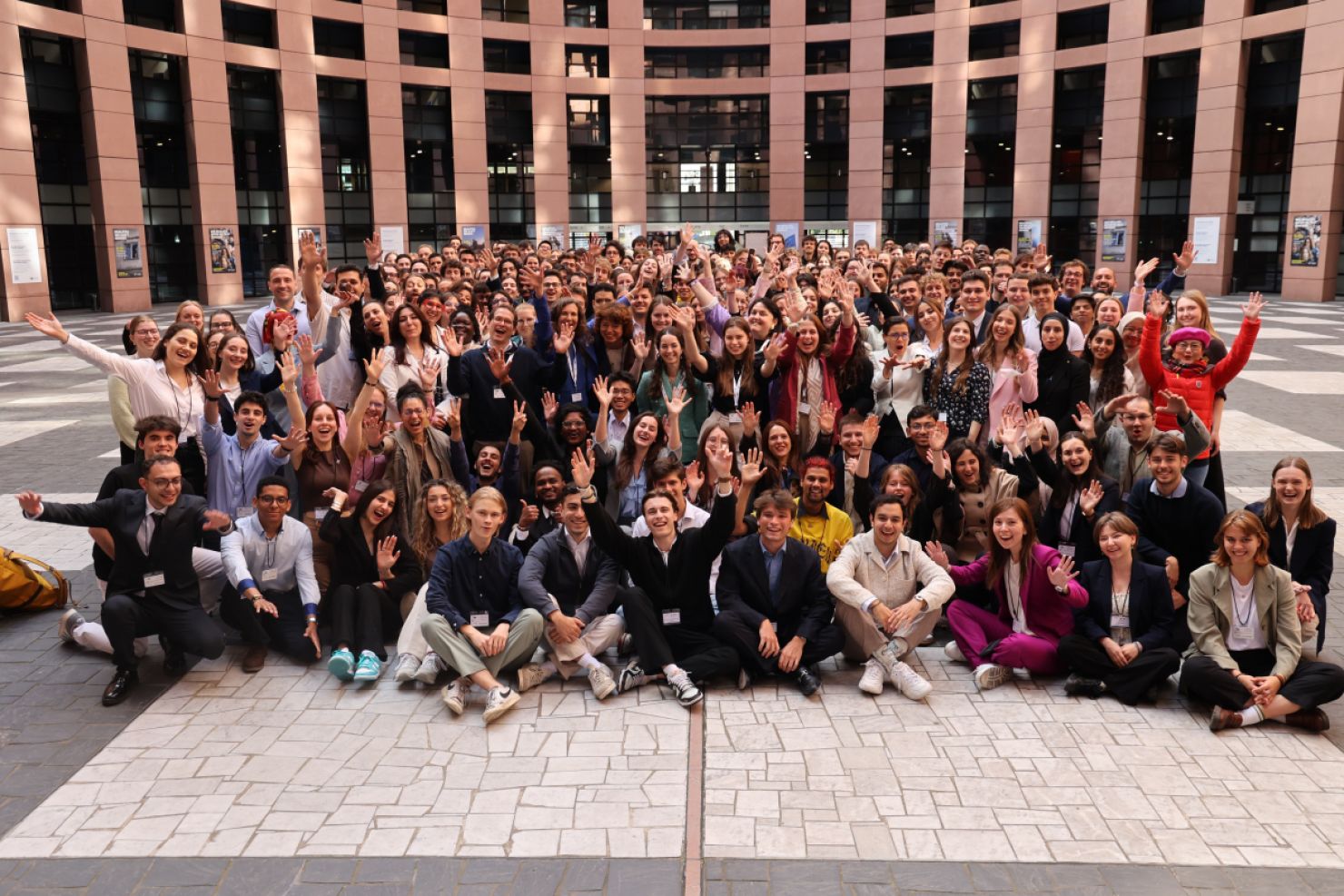
Strasbourg, 28th May 2025 – In the heart of European democracy, over 230 students from 50 countries came together in the European Parliament for the fourth edition of the European Student Assembly (ESA25). For three days, the iconic Robert Schuman chamber was transformed into a laboratory of democratic innovation, as young people debated, drafted, and voted on concrete policy recommendations aimed at shaping Europe’s future.
Held under the European Universities Community Voices (EUC Voices) initiative, ESA25 was more than a symbolic gathering—it was a hands-on policymaking experience that placed students at the centre of democratic life. With 76 policy proposals tabled and 74 adopted, the Assembly proved that Europe's youth are ready not only to raise their voices but to offer pragmatic, thoughtful solutions on issues ranging from mental health and AI ethics to sustainable innovation and gender equality.
From vision to vote: Proposals that mattered
Each of the eight thematic panels delivered sharp, forward-looking policy recommendations:
-
Mental health in the digital age, addressed by Panel 1, led to nine adopted proposals. One fell short due to concerns about feasibility and redundancy.
Dimitra Bekiraki, a second-year Political Science student at the National and Kapodistrian University of Athens (NKUA), who participated in Panel 1 Mentally (Un)stable, highlighted the impact of ESA25 on her personal growth and democratic understanding:
The most profound lesson I learned is having the courage to say what you think, because most of the times, we think that someone else will save us, but we are the ones who have our future in our hands”, said Dimitra Bekiraki (NKUA)
- Green initiatives in higher education, from tree planting to eco-campus funding, saw unanimous support in Panel 2.
Coordinating the panel was Katerina Schoina, PhD candidate at NKUA, who worked with a diverse team to promote sustainability and energy justice through cross-sectoral education policy.
- Panel 3 explored AI and civic life, with nine out of ten proposals adopted—the rejected one lacked clarity and focus.
Andrés García, a Master's student in International Relations at Universidad Autónoma de Madrid, who worked on this panel since February, reflected on the broader implications of ESA25:
This experience is in addition to others I have had in the international context, and has made me reaffirm my commitment to the defense of the fundamental rights of the EU charter and European values that are increasingly being compromised in a polarized and selfish world. Europe more than ever must be the bulwark of democracy, freedom and human rights", Andrés García (UAM).
- Inclusive innovation, lifelong learning, affordable housing, social equity, and cultural inclusion were tackled in Panels 4 to 8, where all proposals were approved, marking a strong collective vision for a sustainable, inclusive Europe.
The two proposals not adopted raised important lessons in democratic practice. One was dismissed for overlap and limited implementation clarity, while the other’s ambiguous scope made consensus difficult. Still, the overwhelming success rate revealed the strength of student collaboration and the quality of their work.
More Than Policy: Lessons in Democracy
ESA25 was not only about drafting policy—it became a civic learning laboratory where students deepened their capacity to argue, negotiate, and co-create. From early research and weekly meetings to final votes, participants navigated real political challenges.
Hebatalla Kamaluddin Nurdin, a biochemistry undergraduate from Indonesia studying at the University of Bucharest, described her experience in Panel 5 Education Beyond Graduation as transformative:
Through this journey, I learned that democracy truly thrives when every voice, especially those of young people, is heard and valued. Diversity and interdisciplinarity are vital to creating well-rounded policies, and meaningful change begins with dialogue, collaboration, and shared purpose", Hebatalla Kamaluddin Nurdin (UB)
She also reflected on how the Assembly helped her find confidence and shared it was an opportunity to step forward, not just as a student, but as someone deeply committed to advocating for education, equity, and lifelong learning.
ESA25 also tested the strength of democratic debate under pressure. For some, it was about learning to lead. Alessia Dapoto, a fifth-year medical student at Sapienza Università di Roma and coordinator of Panel 1, highlighted the broader civic message of the Assembly:
In times of growing tensions, there is an urgent need for change and concrete action to build a more aware, united, and resilient society. In the coming months, the nearly 80 recommendations drafted by the European Student Assembly will be disseminated at local, national, and international levels", said Alessia Dapoto (SUR).
CIVIS represented by our students
The CIVIS Alliance was strongly represented throughout ESA25, with participants taking leading roles as panel coordinators, facilitators, and policy authors. Students from Sapienza Università di Roma, NKUA, Universidad Autónoma de Madrid, University of Bucharest, and Aix-Marseille Université contributed with interdisciplinary insight and civic commitment.
Their collective presence reaffirmed CIVIS’ mission to empower students as active European citizens and co-creators of knowledge, policy, and democratic innovation.
A platform for the future
ESA25 wasn’t just a moment—it was a movement in motion. At the heart of this energy stood the Village of Alliances, where 40 university networks converged to spark new collaborations, share bold ideas, and mentor the next generation of European changemakers. The CIVIS booth pulsed with activity, animated by CIVIS staff representatives Vanessa Jubenot (Université libre de Bruxelles) and Anja Schön (University of Tübingen), whose dynamic presence helped create a welcoming space for dialogue, discovery, and alliance-building. Around them, former ESA delegates returned not just as observers, but as mentors—bridging past experience with future ambition and keeping the spirit of student engagement alive and evolving.
The ESA25 Book of Policy Recommendations is now available! This comprehensive document showcases the full range of proposals debated at the European Student Assembly 2025—both those adopted and those that sparked deeper democratic deliberation. Offering valuable insight into the priorities of Europe’s youth, the publication is a must-read for policymakers, educators, and civil society actors eager to engage with student-led visions for the future of Europe.
As the Assembly concluded with applause, photos, and final reflections, the message was clear: ESA is not a symbolic exercise, but a real and growing democratic platform.
And the journey continues—ESA26 returns in April 2026.
Read more info: here
Download ESA25 Policy Recommendations Book: here
ESA25: ESA25 Details
Instagram: @euc.voices
Facebook: European Universities Community
LinkedIn: EUCVoices
Header photo: @fusingphoenix @celment.producties
Photos: Katerina Schoina

